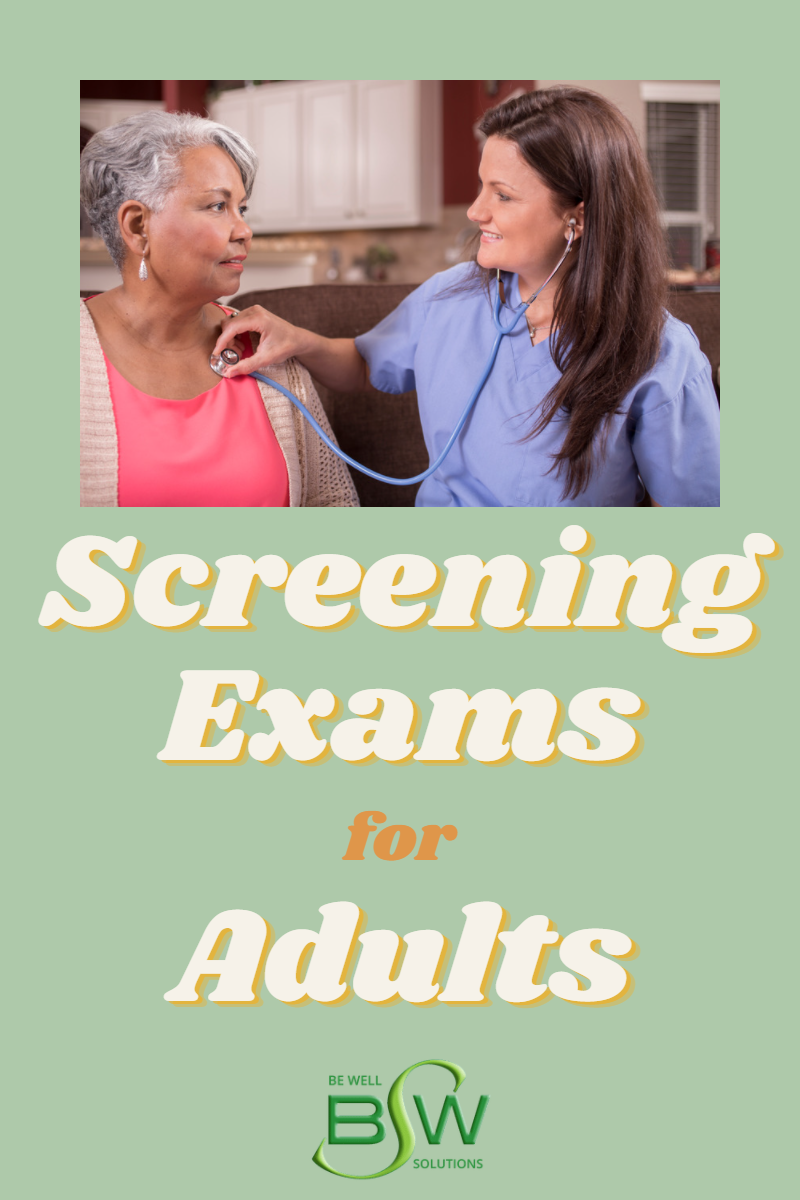
“An ounce of prevention is worth a pound of cure.”
– Benjamin Franklin
Catching Problems Early
At Be Well Solutions, we encourage you to take charge of your health. In addition to a healthy diet, exercise and avoiding tobacco, being up-to-date on your screening exams is an important tool in the fight against chronic disease. According to the CDC, if everyone in the United States received the recommended clinical preventive care, it would save over 100,000 lives every year. Getting the recommended preventive exams, along with making healthy lifestyle choices, are key steps to health and well-being.
Overcoming Common Obstacles & Misconceptions
There are many reasons people give to avoid completing their preventive exams. Common reasons include:
- “I don’t have time” Preventive exams are a priority. Don’t be the person who wishes they could go back in time and prevent a disease.
- “I don’t have the money” Many preventive exams are covered at no cost to the patient, as part of the Affordable Care Act. If you have questions regarding coverage, ask your doctor, insurance carrier or go to: www.healthcare.gov/coverage/preventive-care-benefits
- “If I get an exam, they will find something wrong” By having a preventive screening, you may be nervous that a disease will be found. Thousands of lives have been saved by early detection. Make sure you take charge of your health by screening, check-ups and patient counseling.
Are you due for a preventive exam?
The best way to answer that question is to talk with your doctor. Age, gender, family history and other risk factors help determine whether a preventive exam is right for you. Be an informed medical consumer and ask your doctor about the following exams:
General Health Screening:
- Cholesterol Screening—For both genders, beginning at age 20.
- Blood Sugar/Glucose Screening—For both genders. Frequency depends on other risk factors.
- Blood Pressure Screening—For both genders at all ages.
- Osteoporosis Screening—For women over 65 or starting at menopause.
Cancer Screening:
- Prostate Cancer Screening—For men beginning at 40 or 50, dependent on risk.
- Breast Cancer Screening— For women at normal risk, talk to your doctor at age 40.
- Cervical Cancer Screening—For women, beginning at age 21.
- Skin Cancer Screening—For both genders.
- Colorectal Cancer Screening—For both genders at normal risk, beginning at age 45.
Other:
- Sexually Transmitted Disease Screening—For sexually active people at risk.
Continue reading November 2021 Newsletter: Gratitude for Stress Management
